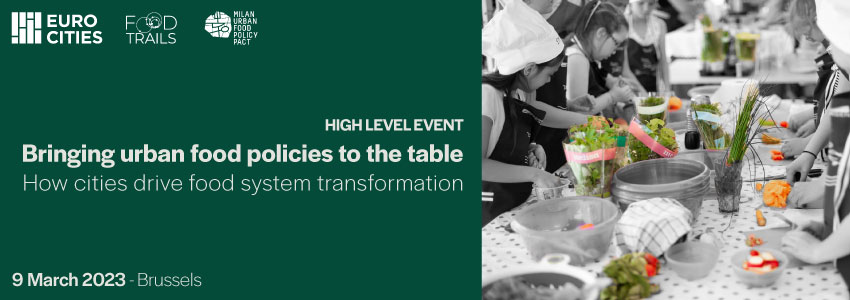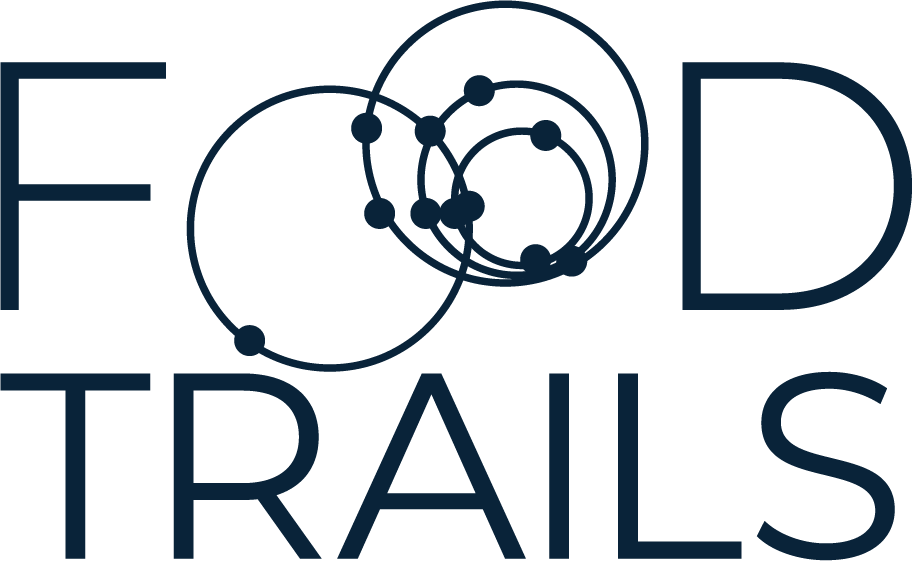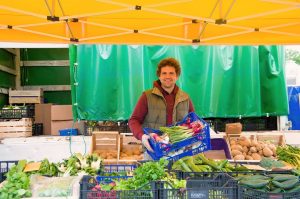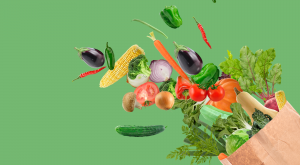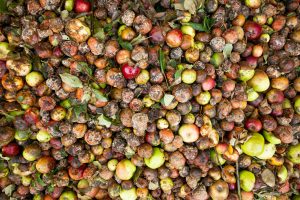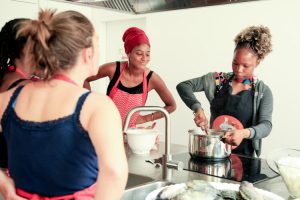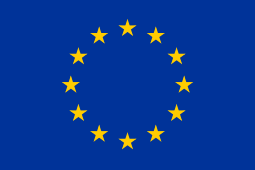In 2023, the European Commission will propose a legislative framework for sustainable food systems, one of the flagship initiatives of the Farm to Fork Strategy. Its goal is accelerating and facilitating the transition towards more sustainable food systems.
European cities are already acting and co-creating measures and policies with citizens and local food stakeholders to limit food systems’ impact on climate and the environment, improve citizens’ well-being, shorten and strengthen production chains, and guarantee access to good food for all.
Milan is a leading city in urban food matters. The Italian municipality launched its Food Strategy and the Milan Urban Food Policy Pact in 2015. The pact is a global commitment of over 260 mayors worldwide to develop more sustainable urban food systems. The Pact supports cities by fostering cooperation, knowledge sharing, and exchange of best practices.
Since then, Milan’s food policy has worked on five priorities (ensure healthy food and water for all citizens; promote sustainability of the food system; promote Food Education; fight against food waste; support the scientific research in agri-food sectors), and from 2022 became a dedicated unit under the Education Directorate of the Municipality of Milan, dealing with school canteens, agriculture, food poverty and the Pact.
The Italian city is also the Chair of the Eurocities Working Group Food since its launch, which acts as the “European branch” of the Milan Urban Food Policy. Finally, Milan is the overall coordinator of the Food Trails project.
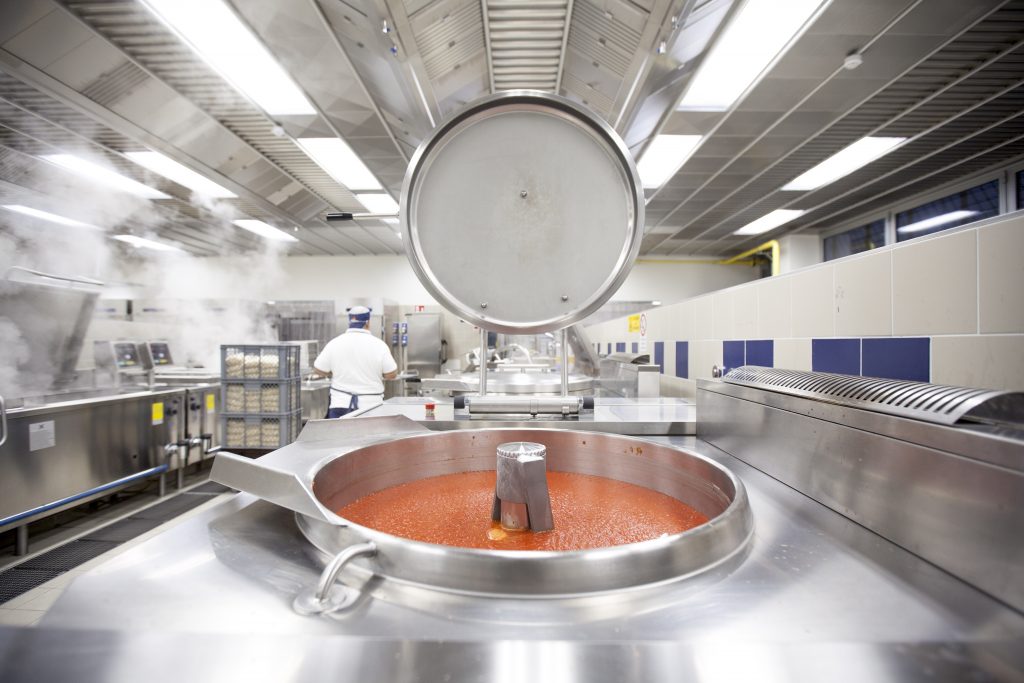
All starts in schools
As part of the project Food Trails, Milan focuses on food waste to avoid it and transform this problem into a solution. “Food became one of the most important drivers for the local economy,” says Andrea Patrucco, comanager of Food projects at Milan municipality.
Milan joins efforts with several stakeholders around the city to fight against food waste, considering it a top priority. One is Milano Ristorazione, the public company managing the collective catering in the city. “We are working with them, not just to improve the circularity of their activities, but also to improve the knowledge and skills of the people working there,” says Patrucco.
Milano Ristorazione produces about 83,000 hot meals every day and distributes them to 420 school canteens and 184 nursery schools, with the contribution of almost 4,000 workers in 24 kitchen centres.
Since 2015, many actions related to sustainability and the promotion of healthy diets at school, designed in the context of Milan Food Policy, brought significative results such as the reduction of CO2e emissions generated by the menus of school canteens (42% reduction between 2015 and 2021), the increase in organic products (bio), and plastic decrease with the introduction of dishes made of 100% eco-sustainable material.
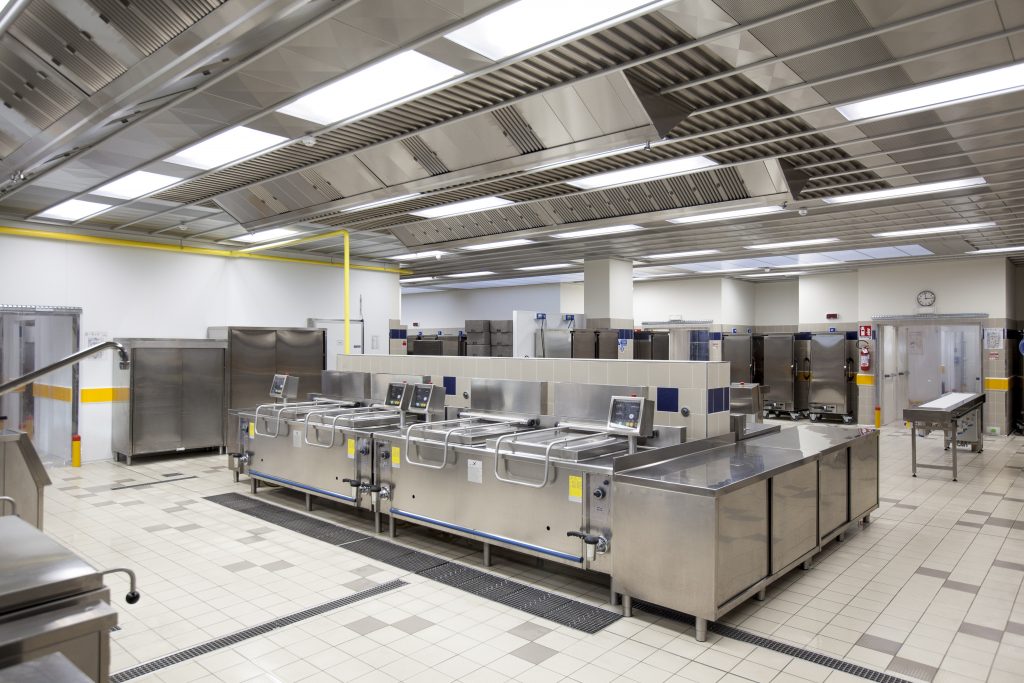
And there is where the Living Lab of Food Trails comes into place with a pilot running in educational institutions. Milan Living Lab mainly focuses on school canteens and promoting sustainable and healthier diets through procurement and reducing and valorising food waste. “In Milan, the goal in Food Trails is to reduce or repurpose waste in the school canteens,” explains Alice Casiraghi, Circularity Cross-Cutting Manager and Advisor to the 11 Food Trails partner cities.
The municipality analysed the current waste and aligned with Milano Ristorazione to find the most impactful waste in their daily activities. Since health authorities’ regulations determine the quantity of food per student in schools, food is wasted “because of personal tastes, because the portions are too big for some children, or because of miscommunication between kitchens and canteens in the planning phase,” says Casiraghi.
“So, we need to work on education, prevention and reuse of food waste.” Broader analyses have been conducted in other food projects within Milan’s food strategy. Food Trails joins efforts with multiple other projects under the umbrella of the Food Policy Department to measure waste in the different streams of the public sector: wholesalers, markets, and school system…
From the Food Trails Living Lab results, Milan generated two primary questions to reduce food waste: what to do with the food already served but not eaten, and how to better coordinate with the kitchens to improve the amount given at school canteens.
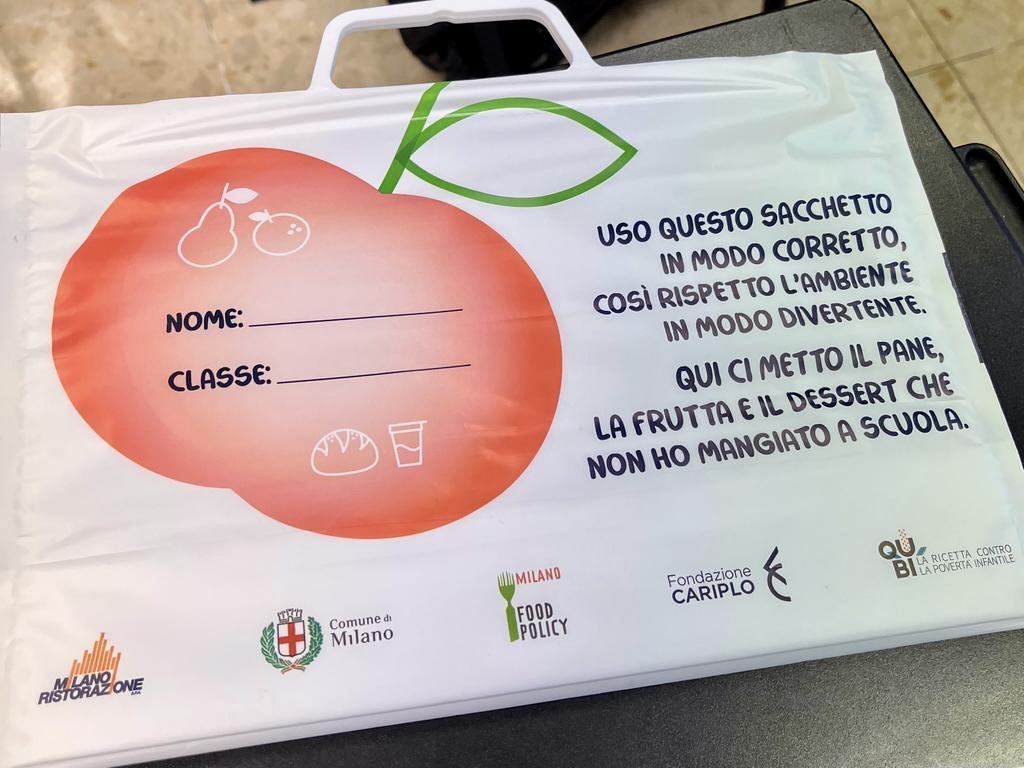
A second chance for food waste
Is there a second chance for food waste? How to improve the communication between the schools and the kitchen so that the prepared food is precisely what will be eaten? Since different kitchens prepare the food that ends up in hundreds of educational institutions, the communication and the logistics turned out to be challenging.
So, how to increase the amount of food that can be saved? “Kids are encouraged to eat their bread and fruit in school,” explains Casiraghi. “ If it is too much for them, they’re given a doggy bag; if there are still leftovers, those go towards donation.” The schools participating in the food waste analysis pilot will also examine the quantity and types of consumption by the kids.
Milan also works with Milano Ristorazione to invest in future generations through public procurement education activities for kids on food waste prevention. LastJune, the city distributed over 71,000 educational booklets entitled ‘At the table without waste‘ to preschool and primary school children.
Plus, the city will implement experimental nudging actions, intervening in school canteens’ environment to reduce food waste.
“Another important leverage to reduce food waste is improving the communication between the schools and the kitchens so that the prepared food is precisely the food that needs to be eaten. In cases in which prevention turns out to be impossible. The alternative is food redistribution,” Patrucco explains. Since multiple kitchens in Milan prepare the food every morning, which ends up in hundreds of educational institutions just a few hours later, the communication and the logistics are not an easy task to manage.
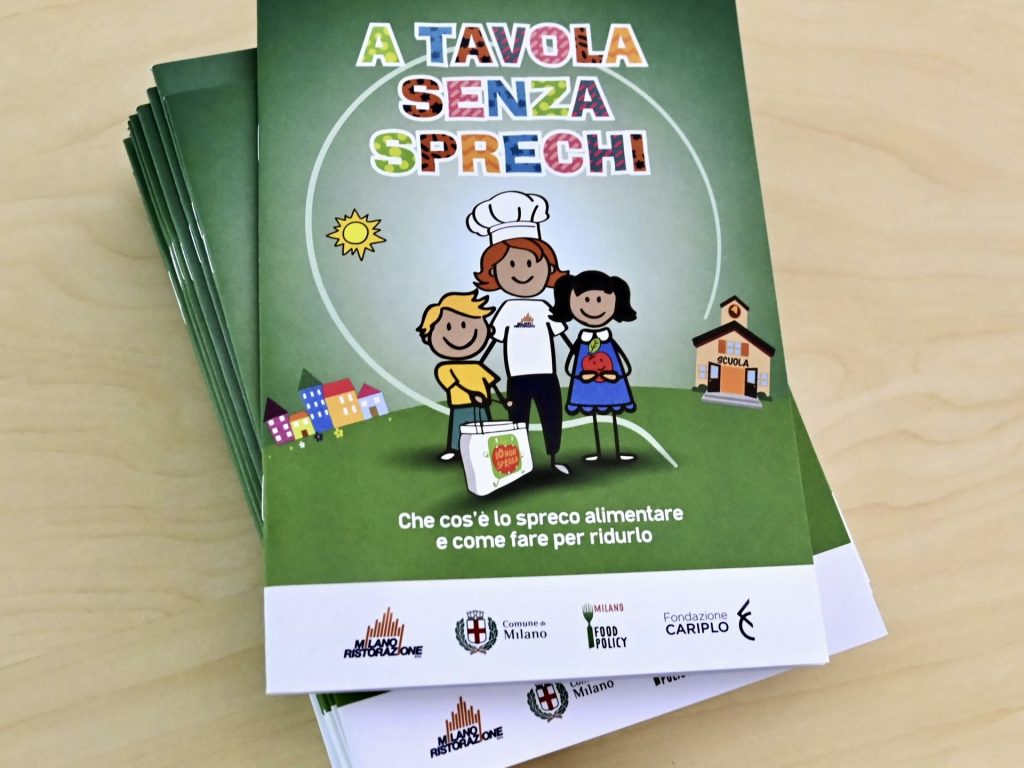
Milan is tinkering with one innovative idea: reverse logistics. “As there are trucks that go from kitchens to canteens with food, there could be trucks that bring waste from schools back to canteens where it could be turned into compost, animal feed, biofuel etc. for a fully circular system. “We could prevent waste from reaching the waste treatment facility and repurpose it instead be used by other actors in the city, or to power the same kitchens with biofuel,” concludes Casiraghi.
During the lockdown, the city had already implemented a significant food redistribution effort involving schools, among other organisations. Thanks to the coordination of the Municipality, many supermarkets, small businesses, wholesalers, and city schools contributed with their extra food to the food banks. From the food banks, the undistributed meals were then donated and delivered through charities based in different city’s districts to families in need.
One of Milan’s aims through Food Trails is to reduce the average number of tonnes of leftover food per year in school canteens.
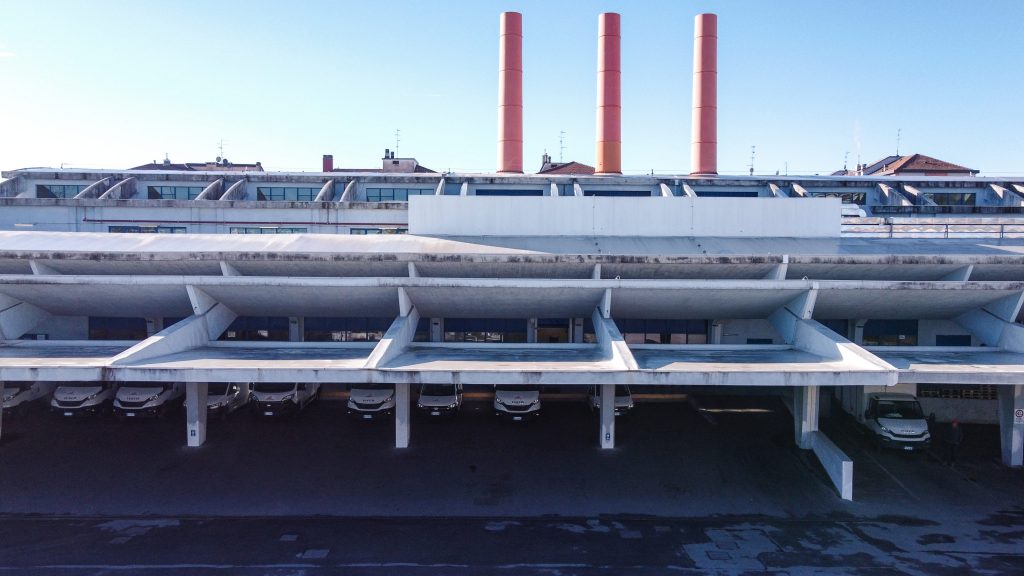
Next steps towards a more circular food system
To reach Milan’s food policy goals, a feasibility study is being run to analyse the most environment-friendly ways to reuse tons of leftovers generated by the schools.
For Patrucco, working on food waste becomes an opportunity to valorise it. “A feasibility study on food waste repurposing is necessary since we don’t have previous knowledge on how to transform organic waste into biofuel or other resources,” he says.
“Everything about food is more complex than we think,” concludes Casiraghi. “It’s a very interconnected system. Even when reducing waste, we must ensure no one is left behind. There should be no competition between extra food that is donated and wasted food that is repurposed in a circular economy. We have stringent nutritional values to follow for school meals. We need to meet both human and environmental needs.”
“Food trails is a very good example of how to translate concrete actions in potential policies and effects on European law,” Patrucco says, “ and we are now organizing with Eurocities and the Milan Urban Food Policy Pact an advocacy event on 9 March in Brussels: a closed-door meeting with cities’ political representatives and representatives from the European Commission discussing the proposal for a legislative framework for sustainable food systems.”
On this occasion, cities will have the opportunity to reaffirm their commitment to transforming food systems; demonstrate how they can concretely act upon food and agriculture, develop food policies, influence food environments and shift inhabitants’ eating habits; and advocate for ambitious EU food policy.
Five Food Trails cities will attend this event to join the discussion and share their concrete experience, including their Food Trails Living Labs, and their vision for the future of food in the EU.
This article is part of the #EUFoodCities campaign. In a time where political ambitions for a common food policy in the EU are shaking, cities want to be loud and reiterate their critical role in food systems transformation advocating for ambitious EU legislation under the Farm to Fork Strategy.
This campaign is paired with a high-level political event ‘Bringing urban food policies to the table’ taking place in Brussels on 9 March. More information here.
